Publicity
On Astrid Lisondro-Arosemena’s 2024 J. Exp. Zool. B paper – Elevated ammonia cues hatching in red-eyed treefrogs: A mechanism for escape from drying eggs.
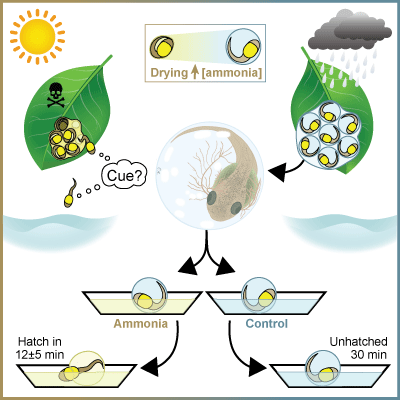
Red-eyed treefrogs hatch a plan to escape warming temperatures – Smithsonian Tropical Research Institute
Dentro de los huevos de la rana de ojos rojos se trama un plan para escapar de las altas temperaturas – Instituto Smithsonian de Investigaciones Tropicales
Los huevos de rana arbórea de ojos rojos incuban un plan para escapar del aumento de las temperaturas – La Prenza
On Caroline Guevara-Molina’s 2022 Integr. Org. Biol. paper – Heat-induced hatching of red-eyed treefrog embryos: Hydration and clutch structure increase behavioral thermal tolerance
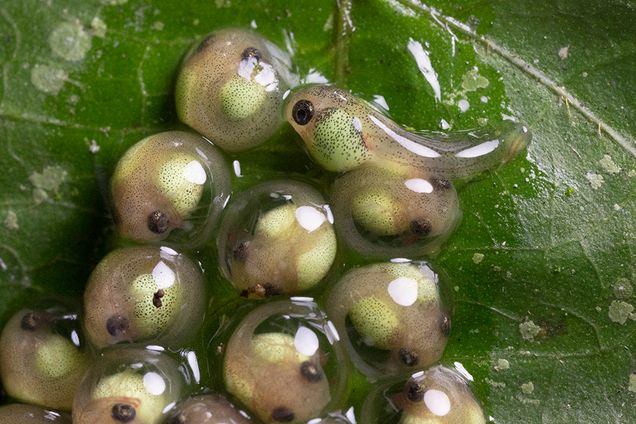
When the heat is on, red-eyed treefrogs hatch early – Smithsonian Magazine
On Julie Jung’s 2020 J. Exp. Biol. paper – Multimodal mechanosensing enables treefrog embryos to escape egg predators
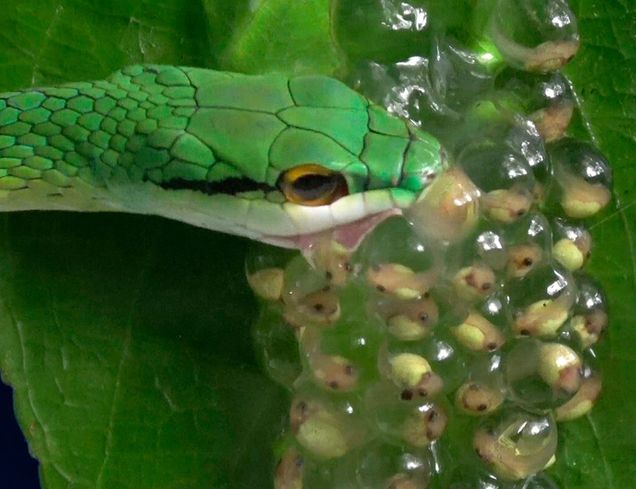
Lateral line helps premature treefrogs evade jaws of death – Inside JEB
On Julie Jung’s 2019 J. Exp. Biol. paper – How do red-eyed treefrog embryos sense motion in egg predator attacks? Assessing the role of vestibular mechanoreception
2019 JEB Outstanding Paper shortlist – “A fascinating finding, carefully planned experiments and very well written up”
Developing ears key for red-eyed treefrog embryo survival – Inside JEB
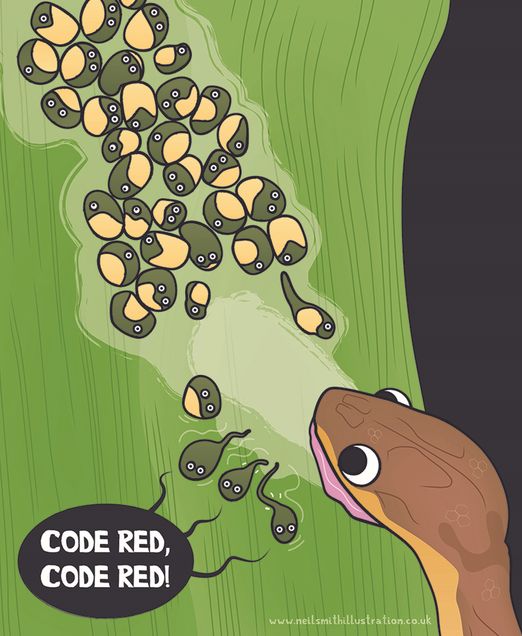
On Jesse Delia’s 2017 J. Evol. Biol. paper – Patterns of parental care in Neotropical glassfrogs: fieldwork alters hypotheses of sex-role evolution
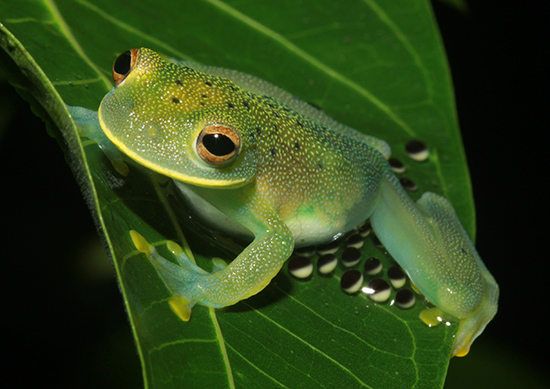 Cochranella granulosa mother brooding eggs – Jesse Delia
Cochranella granulosa mother brooding eggs – Jesse Delia
Under a flashlight, a Eureka moment about frogs – New York Times
For glass frogs, moms matter after all – Science News
(Some) frogs are better parents than we thought – BU Research
Egg-sitting glassfrogs create safe exit for tadpoles – Smithsonian Newsdesk
Glassfrogs pee on their eggs to protect them – The Wire
On Kristina Cohen’s 2016 J. Exp. Biol. paper – How embryos escape from danger
Red-eyed treefrog embryos hatch in seconds – Inside JEB
Baby frogs have a super-speedy way to escape snakes – National Geographic Phenomena/Not Exactly Rocket Science
Video reveals how iconic frog’s embryos escape death – Science, complete with music video
Badass frog embryos can hatch in seconds to escape snakes and wasps – The Verge
Frog embryos speed-hatch to escape danger – Live Science
When under attack, these frogs hatch themselves – New York Times/Science Take
Baby frogs hatch in a hurry when snakes attack – IFLScience!
Researcher studies how embryos escape from danger – BU Research
Frog embryos escape from snakes by releasing egg-dissolving enzymes from their faces – The Science Explorer
Clever treefrogs – Popular Science
Baby frogs escape from snake in seconds – Mongabay
Video captures tadpole escape artists in Panama – Eureka Alerts/Smithsonian Tropical Research Institute
Les embryons de grenouilles sont capables de fuir les prédateurs – Sciences et Avenir
On escape hatching and the Development of Adaptive Embryo Behavior
Boston University Research article (with video) about the work we’re doing on our 5-year NSF-funded project.
Another version of the “Escape Hatch” story, in Bostonia magazine.
Discover Magazine article (by BU Science Journalism graduate Kate Wheeling)
On Jesse Delia’s 2014 Proc. R. Soc. B paper – hatching to escape paternal neglect
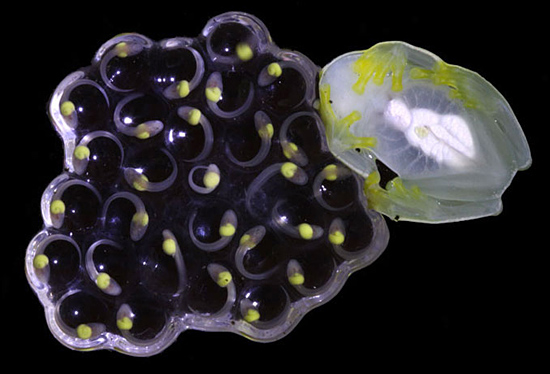
“When Dad’s go missing, frogs start hatching” – Science
“See-through frog embryos know when Dad’s not watching” – Live Science
“Abandoned frog eggs can hatch early” – Science News
On BU’s Spring 2014 Herpetology course
by Professors Christopher Schneider and Karen Warkentin, with TF Kristina Cohen
Nets and Nooses: Adventures in Herpetology (story by BU Journalism MA students)
Teachable moments in gator country – BU Today
Smithsonian Magazine – 2013 “How the treefrog has redefined our view of biology” – On red-eyed treefrogs, hatching, phenotypic plasticity, and our research life in the Warkentin Lab at the Smithsonian Tropical Research Institute in Panama.
Science Friday – Treefrog tremulation
On Michael Caldwell’s PhD research and Current Biology paper on vibrational communication in competitive interactions between male red-eyed treefrogs (Caldwell et al 2010)